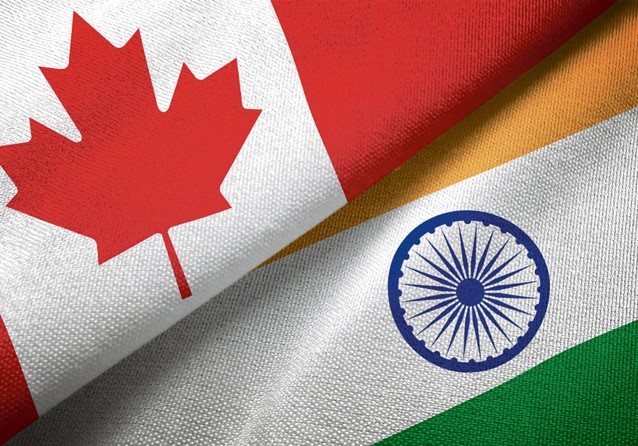Description

Disclaimer: Copyright infringement not intended.
Context
- India and Canada held the sixth Ministerial Dialogue on Trade & Investment (MDTI) in Ottawa.
Highlights of the joint statement
- The Ministers emphasised the solid foundation of the trade and economic relationship between India and Canada and recognized the significant opportunity to deepen bilateral ties and economic partnership.
Indo-Pacific
- In recognition of the critical importance of the Indo-Pacific region for Canada’s prosperity, security, and its capacity to address environmental challenges, Ministers noted the rolling out of Canada’s Indo-Pacific Strategy and noted India’s importance in the region.
Bilateral Trade
- The Ministers noted the resilience of bilateral trade in 2022 following the challenges of the COVID-19 pandemic and the disruptions caused by the war in Ukraine.
- Canada-India bilateral trade in goods reached nearly C$12 billion in 2022, a substantial 57% increase over the previous year.
- The Ministers noted the significant potential for increasing bilateral services trade which stood at C$8.9 billion in 2022.
- They called for boosting commercial ties in such sectors as agricultural goods, chemicals, green technologies, infrastructure, automotive, clean energy, electronics, and minerals and metals.
.jpeg)
CEPA
- Recognising the need for a comprehensive trade agreement, in 2022 the Ministers formally re-launched the India-Canada Comprehensive Economic Partnership Agreement (CEPA) negotiations.
- In pursuit of that goal, negotiations towards an Early Progress Trade Agreement (EPTA), as a transitional step towards the CEPA, have been underway.
- The EPTA would cover high-level commitments in goods, services, investment, rules of origin, sanitary and phytosanitary measures, technical barriers to trade, and dispute settlement, and may also cover other areas where mutual agreement is reached.
Global Supply Chains
- The Ministers noted that global supply chains remain under the threat of disruption from the fallout of the COVID-19 pandemic, as well as the effects of the ongoing war in Ukraine.
Cooperation in technologies
- They emphasised enhancing cooperation in sectors such as clean technologies for infrastructure development, critical minerals, electric vehicles and batteries, renewable energy/hydrogen, and AI.
- The Ministers agreed on the importance of government to government coordination to promote critical mineral supply chain resiliency.
Education
- In line with the announcement made in the National Education Policy 2020 of India for facilitating foreign universities and educational institutions, India also invited top Canadian Universities to set up their campuses in India.

Other areas
- The Ministers recognised the value of further deepening the India-Canada commercial relationship through initiatives such as organized fora for SMEs and women entrepreneurs.
- To continue the momentum of B2B engagement, both Ministers look forward to the relaunch the Canada-India CEO Forum with renewed focus and a new set of priorities. Further, Canadian Minister announced leading a Team Canada trade mission to India in October 2023.
MUST READ ARTICLES:
India Canada Relations: https://www.iasgyan.in/daily-current-affairs/india-canada-relations
|
PRACTICE QUESTION
Q) There is a need for a comprehensive trade agreement to realise the full potential of India-Canada trade relations. Examine. (150 words)
|
https://www.pib.gov.in/PressReleasePage.aspx?PRID=1922964









